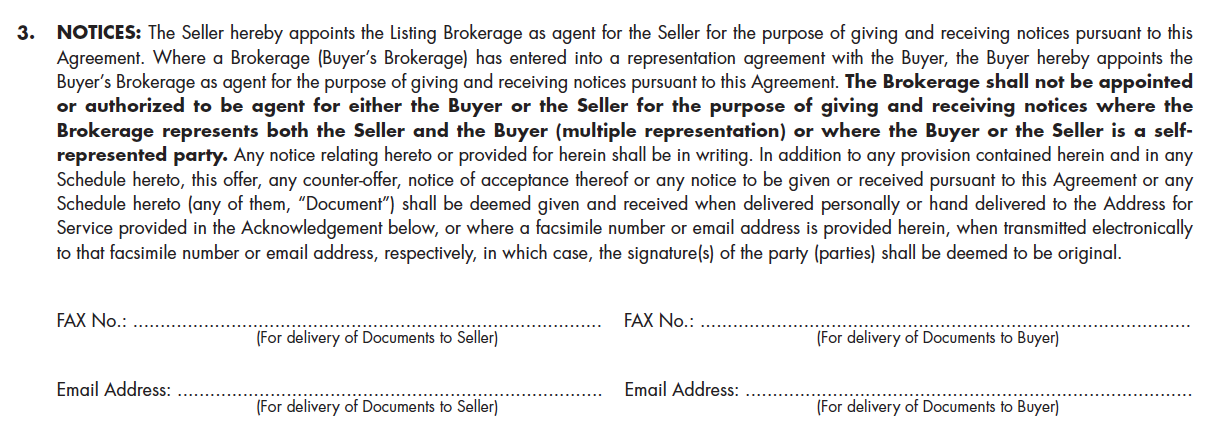How to Communicate Acceptance of an Offer
Reading Time: 4 minutes
Acceptance of an offer requires signing the Confirmation of Acceptance AND "communicating" that acceptance by written notice to the provided:
1) address for service,
2) fax number, or
3) email address.
For the purposes of this article, we're talking about agreements using a Standard OREA Form 100.
I received an interesting question a few weeks back:
What is the definition of "communicating" in the context of acceptance of an offer?
And it's an important question...
Because to have a valid contract, one party has to make an offer, and the other party has to accept it AND communicate that acceptance to the offeror.
The communication is essential so the parties know that they have a contract.
If two parties are in the same room, the communication is inherent.
But these days, deals are signed electronically, and rarely with the parties together.
This means, that even when the Confirmation of Acceptance is signed, communication of that acceptance is still required.
So our question is... what qualifies as communicating?
Let's look to the Agreement of Purchase and Sale:

You'll notice in the second half of the NOTICES clause, it states:
"In addition to any provision contained herein and in any schedule hereto, this offer, any counter-offer, notice of acceptance thereof... shall be deemed given and received when delivered personally or hand delivered to the Address for Service provided in the Acknowledgement below, or where a facsimile number or email is provided herein."
So the default APS allows for acceptance to be communicated by one of three (3) methods:
1) Delivered to the Address for Service in the "Acknowledgement" section,
2) By Facsimile, when a number is provided, and
3) By email, when an address is provided.
The parties can also add their own custom provisions for delivery of notice to the agreement if they choose.
Now, I can already think of a few questions and scenarios where things can get "grey" - especially when dealing close to an irrevocable deadline.
And the fact is, there is no black and white legal answer to each hypothetical we can imagine.
It will depend on the facts of the situation and what can be proven to a court.
So when it comes to best practices and training Realtors - err on the side of caution...
Send then email to the right address, with the signed APS attached, before the irrevocable deadline.
Zachary Soccio-Marandola
Real Estate Lawyer
Direct: (647) 797-6881
Email: zachary@socciomarandola.com
Website: www.socciomarandola.com
Here's a few ways we can connect...
1) Need a lawyer to close your latest deal? Let's work together.
2) Looking for clarity on legal issue? Book a free consultation.
3) Have an idea for the next newsletter? Suggest a topic.
4) Want to create content together? Podcast appearances, speaking engagements, team training, guest blogging, etc. Send me your idea.
